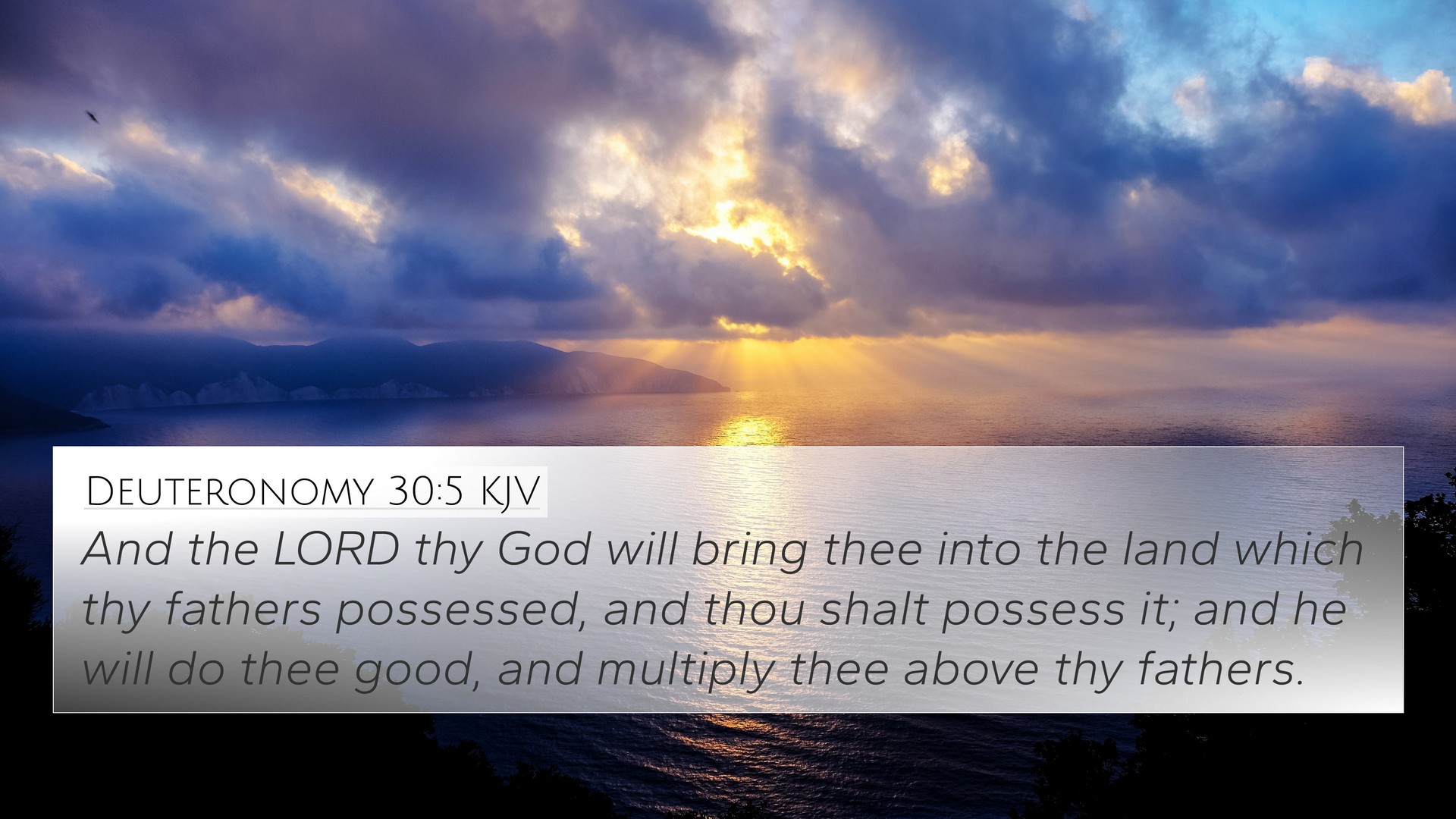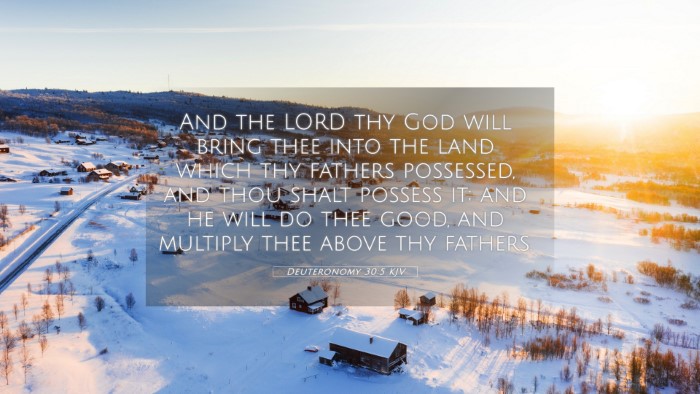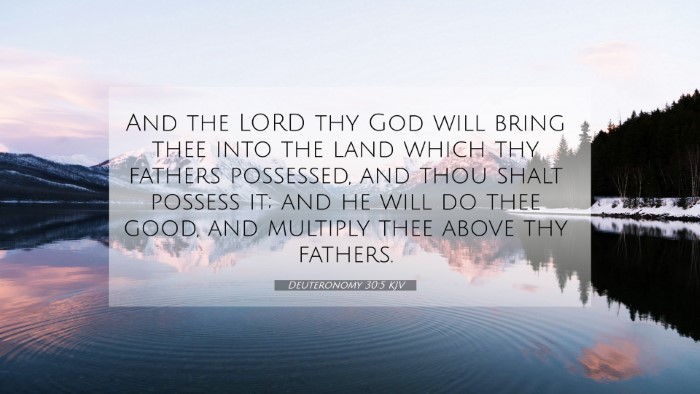Understanding Deuteronomy 30:5
Verse: Deuteronomy 30:5 - "And the LORD thy God will bring thee into the land which thy fathers possessed, and thou shalt possess it; and he will do thee good, and multiply thee above thy fathers."
Summary of Deuteronomy 30:5
This verse emphasizes God's promise to the Israelites regarding the land of Canaan. It signifies restoration, blessings, and the abundance that follows obedience to God's commandments. The verse reaffirms the covenant relationship between God and His people and reflects the hope of future blessings, both physical and spiritual.
Commentary Insights
- Matthew Henry: Henry discusses God's commitment to bringing His people back to their homeland. He stresses that it is not just a physical return but signifies spiritual restoration and fulfillment of promises made to their ancestors. This act is a reflection of God's goodness and faithfulness.
- Albert Barnes: Barnes focuses on the implications of possessing the land. He indicates that the land signifies not merely a territory but the blessings and favor that accompany obedience to God. The increase of their flock and the fertility of the land are blessings tied to their faithfulness.
- Adam Clarke: Clarke notes that this verse recalls the covenant established with the patriarchs. He elaborates on how the blessings would not only be for the individual but also for the nation as a whole, portraying a collective promise of prosperity and divine favor.
Theological Implications
Deuteronomy 30:5 is an essential verse in understanding the consequences of obedience and the blessings promised by God. It highlights:
- The importance of land in the Hebrew tradition as a symbol of belonging and divine favor.
- The connection between past promises to the patriarchs and their fulfillment in the present generation.
- The expectation of abundance from God as a result of faithfulness and obedience.
Cross-References
Deuteronomy 30:5 connects with several other scriptures, which provide a broader understanding of its message:
- Genesis 17:8: God's promise of land to Abraham as an everlasting possession.
- Numbers 33:53: Command to possess the land and dwell therein.
- Joshua 1:6-9: God encourages Joshua to be strong and faithful in possessing the land.
- 1 Kings 8:56: Acknowledgment of the faithfulness of God in fulfilling His promises.
- Psalms 37:11: The promise that the meek shall inherit the earth.
- Jeremiah 30:3: God's promise of restoration of His people to their land.
- Ezekiel 36:28: Assurance of being settled in the land that was given to their ancestors.
- Matthew 5:5: The Beatitudes express the blessing of the meek inheriting the earth, reflecting a New Testament connection.
- Romans 8:17: Speaks of heirs with Christ, relating to spiritual inheritance.
- Hebrews 4:9-11: Discusses a spiritual rest for the people of God, tying back to the concept of land and inheritance.
Thematic Connections
Deuteronomy 30:5 ties closely with various themes present throughout the Bible:
- Covenant Faithfulness: It portrays God's unwavering commitment to His covenant people.
- Restoration: Themes of returning and being restored to a place of blessing are prevalent.
- Abundance and Blessing: This verse highlights the blessings associated with trusting and obeying God.
Tools for Cross-Referencing
To deepen your understanding of Deuteronomy 30:5 and related scriptures, you may consider the following tools:
- Bible concordance for locating similar themes and verses.
- Bible cross-reference guides that help in thematic Bible verse connections.
- Cross-reference Bible study methods that assist in analyzing scriptures side by side.
Conclusion
Deuteronomy 30:5 serves as a reminder of God's faithfulness and the blessings that come from obedience. By examining its cross-references and thematic connections, one can appreciate the depth of scriptural promise and the overarching narrative of restoration throughout the Bible. Understanding these elements not only enriches one’s faith but also enhances the study of God's Word through careful cross-referencing and analysis.



